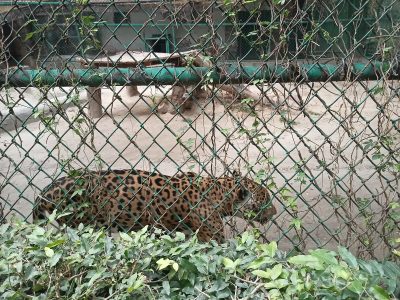For the longest time at the Delhi Zoo, two female rhinoceros were bereft of any company but their own. Given that they are of the same sex, the zoo also had not seen the birth of any rhino on its premises. However, the status quo at the Delhi Zoo is about to change next week with the introduction of a male rhinoceros from Guwahati Zoo.
The male rhino will be exchanged for a female named Maheshwari as part of the Wildlife Exchange Program. Maheshwari’s calf Aanjuha will remain in Delhi. “The exchange is being undertaken since both the rhinos we have are females, which causes them to feel lonely. We have wanted to introduce a male rhino to the zoo for a very long time, and the plan has finally come to fruition,” said Delhi Zoo Director Sanjeet Kumar.
Apart from the rhino, the zoo is also slated to become the home to a royal bengal tiger and a hornbill from Guwahati.
The Delhi Zoo team has left for Guwahati after making special arrangements to bring the animals in separate trucks. On the other hand, the zoo in the national capital has also given a macaw parrot and a black buck to Guwahati Zoo, both of which are categorised as endangered in India.
A Delhi Zoo officer said their doctors had visited Guwahati to examine the wild animals that are slated to be brought to the national capital for a final checkup before the planned transportation of the animals.
The Delhi Zoo had tried to try to procure a male rhino from Uttar Pradesh and Patna Zoos for the past four years but had been unsuccessful. Moreover, the national capital’s efforts to send both the rhinos to other zoos also proved impossible since no zoo wanted to induct them.
Meanwhile, the entry of the tiger is also likely to be a game changer as, for the first time, after a long wait, the species’ procreation resumed in Delhi last year. The introduction of the male tiger is expected to help augment the species’ count in the Delhi Zoo. The male tiger is being exchanged for a female tiger.
According to a news report by Navbharat Times, the zoo authorities disclosed that in the case of breeding any species, specifically rhinos, special arrangements have been made to ascertain the bloodline of the procured species. The official said that the breeding of female rhinos within their bloodline often proves to be harmful, thus, a female and a male of different families are being kept together. With the introduction of the male rhino, the Delhi Zoo hopes to soon witness the birth of its first rhino on its premises.





